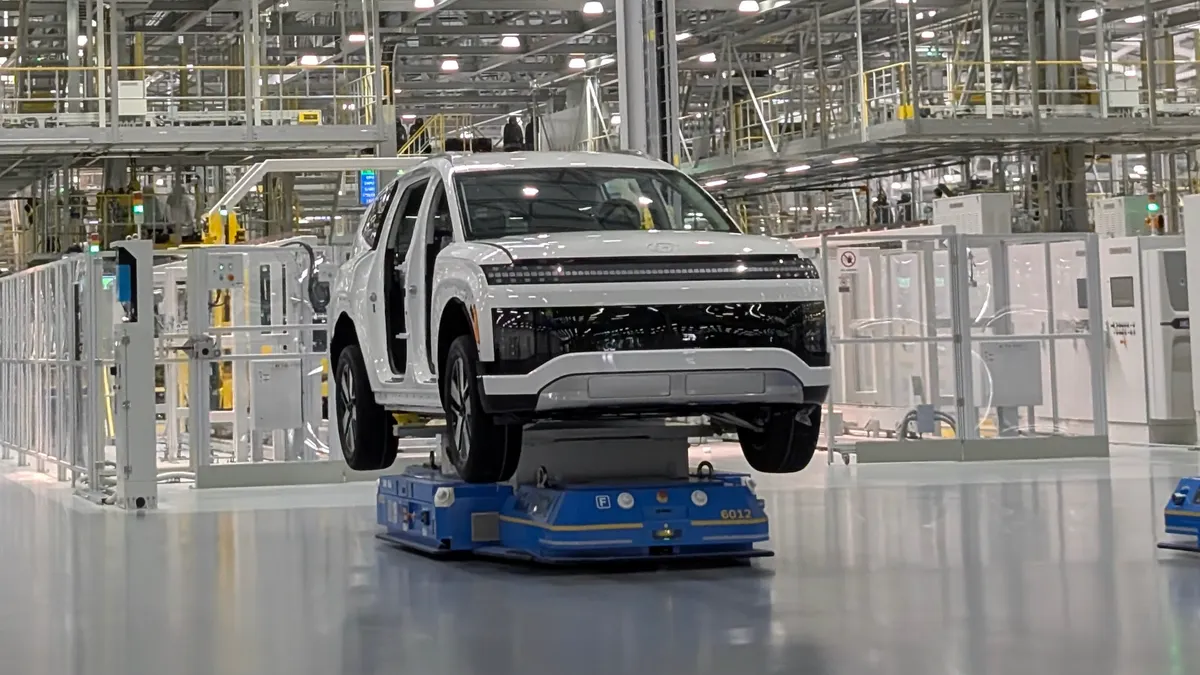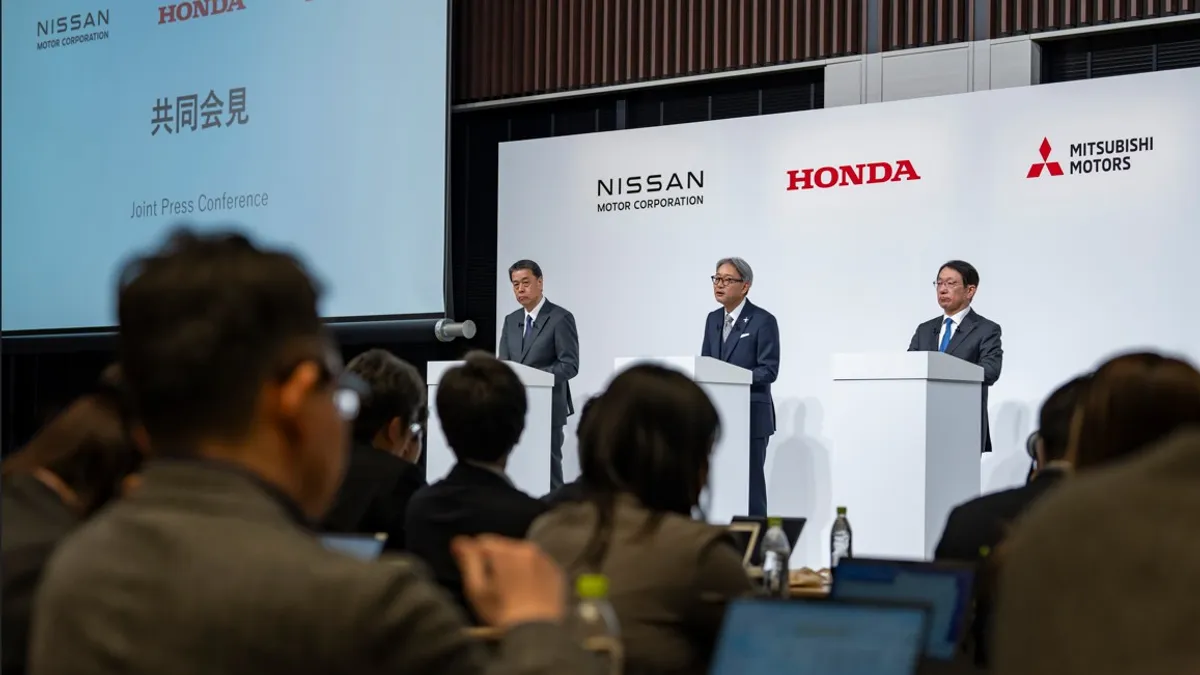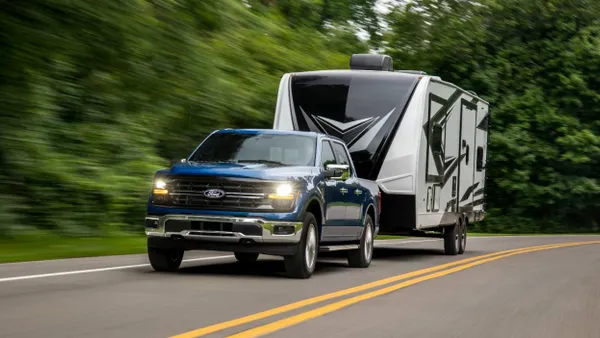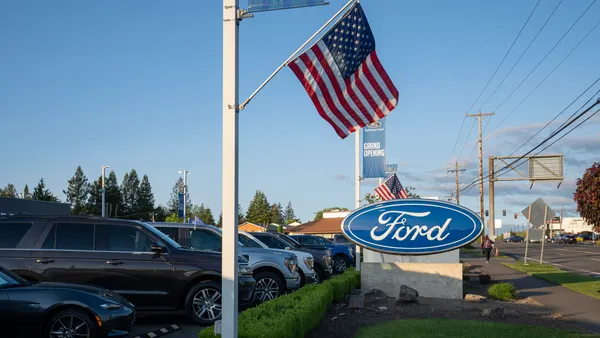Dive Brief:
- Hyundai Motor Group has increased to $26 billion its investment commitment in the U.S. from 2025 to 2028 to boost vehicle production capacity, fund construction of a steel plant in Louisiana and build a new robotics facility, the company announced in a press release.
- The new commitment is $5 billion more than the $21 billion the automaker announced in March and will expand Hyundai’s domestic supply chains in response to “American market demand,” per the release.
- The massive investment is expected to create 25,000 direct job opportunities by 2028 and will also help the automaker avoid U.S. import tariffs by increasing domestic manufacturing.
Dive Insight:
With increased production capacity, Hyundai and its sister company Kia can better meet the evolving needs of American consumers “with greater speed and efficiency”, according to the release.
Hyundai and Kia currently operate three U.S. production facilities: Hyundai Motor Manufacturing Alabama, which was established in 2005; the new Metaplant America electric vehicle factory in Georgia, which began production in late 2024; and the Kia Georgia plant, which began producing vehicles in 2009.
Hyundai’s Alabama plant is capable of assembling up to 399,500 vehicles a year, while the Kia Georgia plant currently produces 350,000 vehicles annually. Hyundai's newly opened Georgia EV factory has an initial capacity of 300,000 EVs a year, but the automaker aims to increase that to 500,000 vehicles as the U.S. EV market grows.
As part of its additional $5 billion investment, Hyundai plans to establish a state-of-the-art robotics facility dubbed the “Robotics Innovation Hub” with an annual capacity of 30,000 units. The facility includes design, manufacturing, testing and deployment of advanced robotics.
The investment also aims to accelerate commercialization of robotics via U.S.-based robotics company Boston Dynamics, of which Hyundai owns an 80% stake. Hyundai also plans to expand collaboration with U.S. companies in areas such as AI and autonomous driving via its Motional joint venture with Aptiv.
Hyundai's steel plant in Louisiana will supply the steel required to expand the company’s U.S. automotive manufacturing footprint. But the plant will also help the automaker avoid higher tariffs on imported steel and aluminum, which were increased to 50% by the Trump administration in June. The plant is expected to produce 2.7 million metric tons of steel annually for Hyundai’s U.S. vehicle assembly plants and is slated to begin operations in 2029.
The U.S. market remains one of Hyundai's largest globally. In July, the automaker reported Q2 revenue of $35.2 billion, its highest-ever quarterly revenue in company history. It followed revenue of $32.1 billion in Q1, its previous record-high. Hyundai attributed the sales gains on strong demand for its vehicles in North America.












